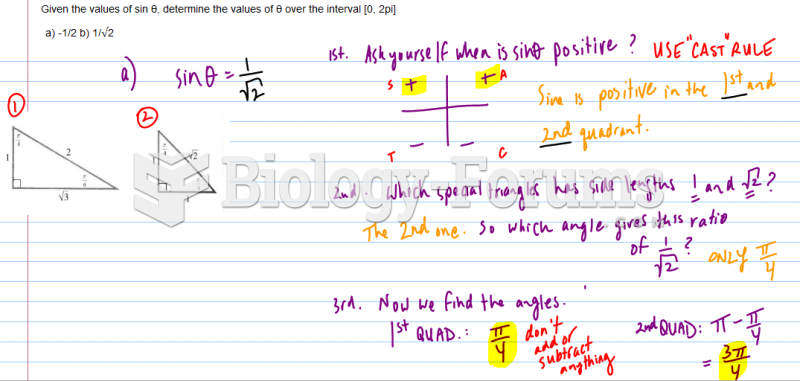Answer to Question 1
3
Rationale 1: Headache is common with phosphodiesterase-5 inhibitors.
Rationale 2: Acne is an adverse effect of androgens.
Rationale 3: Sexual dysfunction may occur with 5-alpha reductase inhibitors.
Rationale 4: Chest pain is an adverse effect of phosphodiesterase-5 inhibitors.
Global Rationale: Sexual dysfunction may occur with 5-alpha reductase inhibitors. Headache is common with phosphodiesterase-5 inhibitors. Acne is an adverse effect of androgens. Chest pain is an adverse effect of phosphodiesterase-5 inhibitors.
Answer to Question 2
4
Rationale 1:Alzheimer disease is associated with progressive loss of brain function characterized by memory loss, confusion, and dementia.
Rationale 2:Parkinson disease is a progressive loss of dopamine in the CNS causing tremor, muscle rigidity, and abnormal movement and posture.
Rationale 3:Muscle spasms are involuntary contractions of a muscle or groups of muscles and over time the muscles tighten, develop a fixed pattern of resistance, and lose functioning ability.
Rationale 4:Multiple sclerosis is demyelination of neurons in the CNS resulting in progressive weakness, visual disturbance, mood alterations, and cognitive deficits.
Global Rationale: Multiple sclerosis is demyelination of neurons in the CNS resulting in progressive weakness, visual disturbance, mood alterations, and cognitive deficits. Signs and symptoms associated include fatigue, heat sensitivity, neuropathic pain, spasticity, impaired cognitive ability, disruption of balance and coordination, bowel and bladder symptoms, sexual dysfunction, dizziness, vertigo, visual impairment, and slurred speech.







